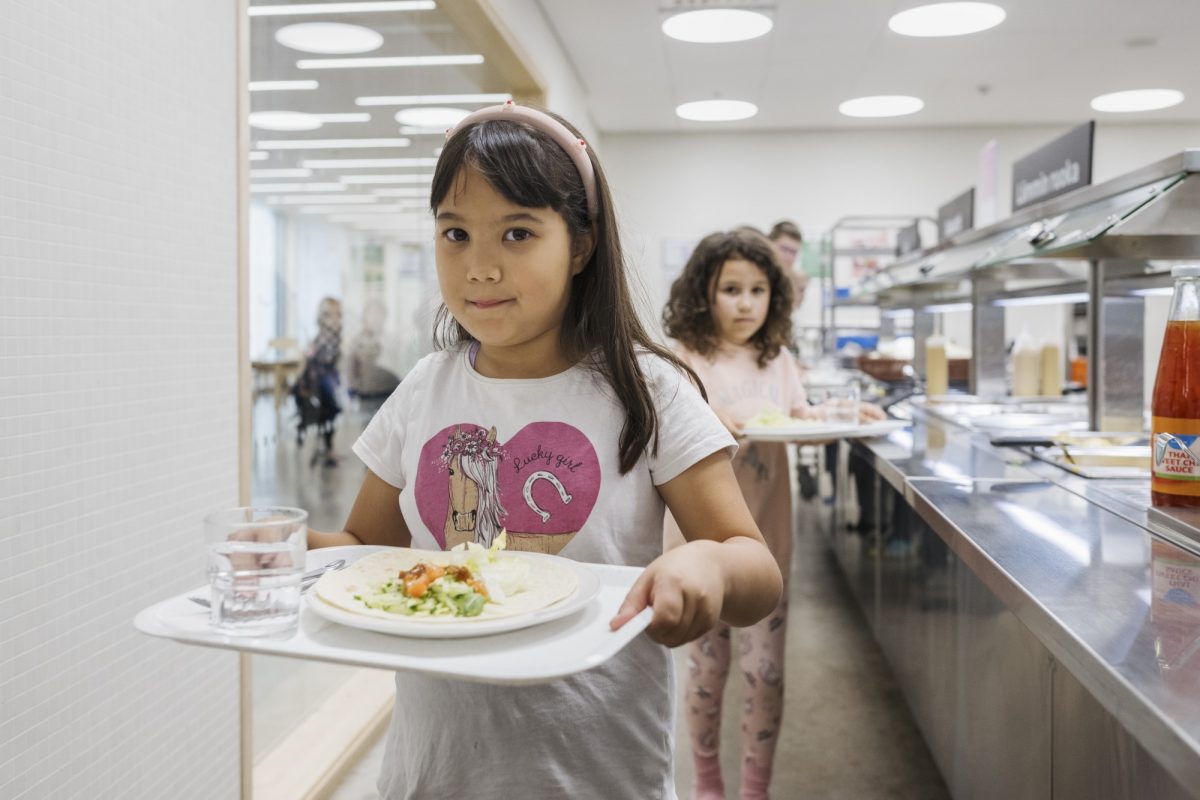Climate sustainable food in Helsinki
As part of the City of Helsinki’s climate goals, Palvelukeskus Helsinki, which provides the city’s food services, also has ambitious goals to reduce consumption-based emissions. The majority of the carbon footprint of food services is made up of the food we eat and its production – vegetarian food, as a rule, has a significantly smaller carbon footprint than food of animal origin. The rest of the carbon footprint consists of, for example, food waste, heating and electricity consumption. Their combined share is around 15 per cent.
Promoting vegetarian food – halving the consumption of dairy and meat products by 2025
Helsinki’s goal is to halve the consumption of dairy and meat products in the city’s food services by 2025. Over the years, the number of vegetarian dishes has been consistently increased on the school and daycare menus, and meat dishes have been replaced by vegetarian food, as well as by poultry and fish. Plant-based milks are being served alongside dairy milk: as of autumn 2023, all daycare centres allow the children to choose oat drink instead of skimmed milk at meals. In the future, there will be increasing pressure to consume more plant-based food, also from the perspective of nutrition recommendations.

Sustainable food procurement
Including sustainability criteria in all food purchases is a key part of the climate work by Palvelukeskus Helsinki. In accordance with the City of Helsinki’s procurement strategy, each procurement project involves an evaluation of the most important sustainability challenges of the product and the criteria are set accordingly. This has helped, for example, in encouraging companies operating in the market to be more ambitious in their climate work, increasing the share domestic animal products and identifying certain high-risk foods, the production of which has major climate and biodiversity impacts.
Reducing food waste
As part of the City of Helsinki’s Roadmap for Circular and Sharing Economy, Palvelukeskus Helsinki is committed to halving the amount of food waste generated in food services by 2030. This is also in line with the UN SDG target.
Emissions from food transport
The share of transport in the carbon footprint of food services is relatively small, but not insignificant, which is why Helsinki also takes climate actions in the area of food transports. The minimum criterion for all transport equipment used by Palvelukeskus Helsinki is compliance with the EURO6 emission class, and the transition from fossil fuels to other power sources, such as electricity, is already well under way.